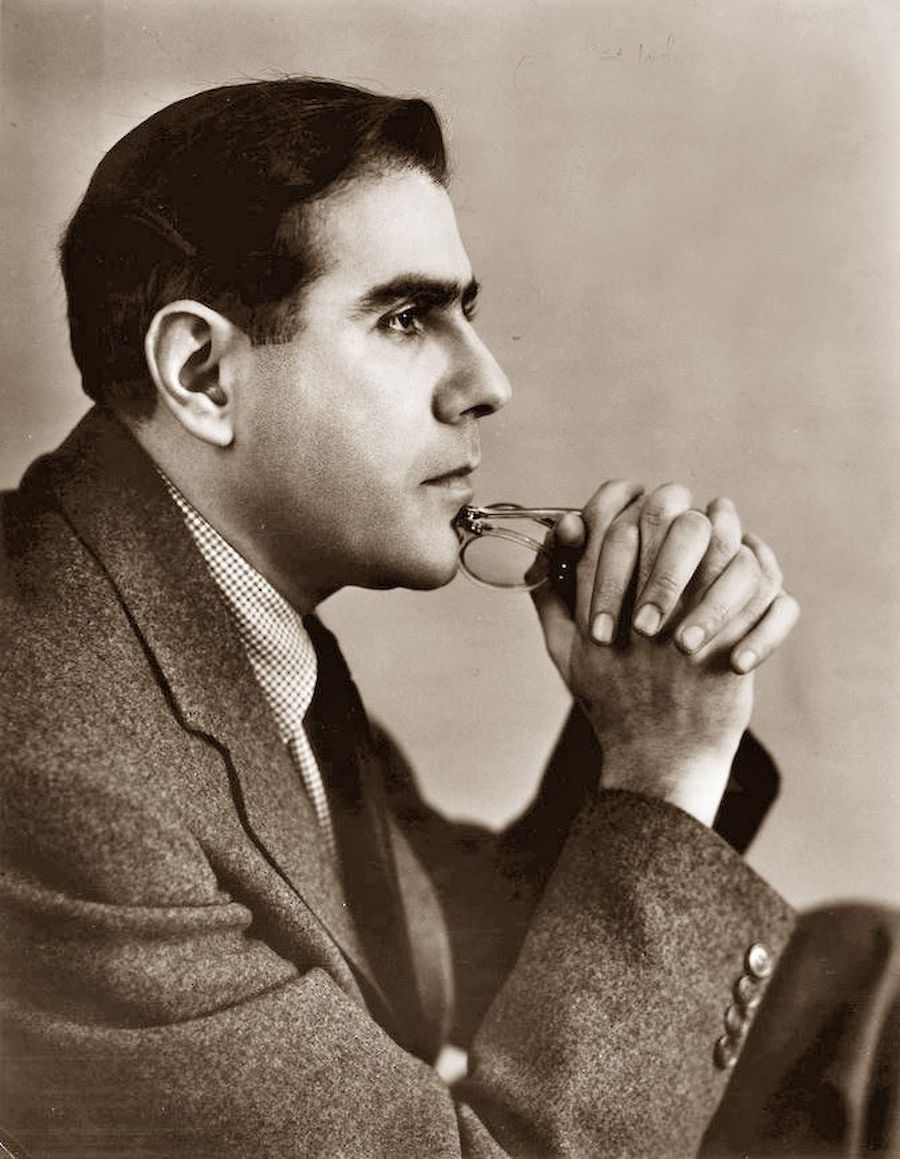About
Born in 1912 in New York City, Berger received his musical education at New York and Harvard Universities, pursuing further studies in Paris with Nadia Boulanger and at the Sorbonne. By his early twenties he was accepted into the circle of avant-garde New York composers and became a member of the Young Composers Group that revolved around Aaron Copland as its mentor. In his capacity as critic, Berger became one of the chief spokesmen of American music for that period.
Although Berger made notable contributions to the orchestral repertory, he devoted the major share of his compositional activities to chamber and solo piano music. His String Quartet received a New York Music Critics Circle Citation in 1962. Among his orchestral works are: Serenade Concertante, written for the CBS Orchestra; Polyphony, a Louisville Orchestra commission; and Ideas of Order, commissioned by Dimitri Mitropoulos for the New York Philharmonic—a work that received a full page story in Time magazine following its premiere.
Among Berger’s numerous published critical and analytical articles, his seminal study “Problems of Pitch Organization in Stravinsky” applied the expression “octatonic” to the 8-note scale that has since become conventionally know by that term. At a time when Stravinsky’s so-called neoclassicism was under attack, Berger wrote extensively and cogently in its defense. He was one of the first to write about Charles Ives and the first to write a book on the music of Aaron Copland. This study, which had occupied him since the early 1930s, was published by the Oxford University Press at a time (1953) when there was no precedent for books on American composers dealing as he did with their musical technique. In August 1990, Aaron Copland was reprinted by Da Capo Press.
Berger’s receipt of an award from the Council of Learned Societies in 1933 was the first in a long series of honors bestowed on him by prestigious organizations throughout his life: Guggenheim, Fromm, Coolidge, Naumburg, and Fulbright Foundations; the NEA; League of Composers; and Massachusetts Council on the Arts & Humanities, to name a few. He was a Fellow of both the American Academy & Institute of Arts and Letters and the American Academy of Arts & Sciences.
Berger began his college teaching career in 1939 at Mills College, where Darius Milhaud joined the faculty the following year. (It was he who persuaded Pierre Monteux, conductor of the San Francisco Symphony, to ask Berger to write a woodwind quartet for first-desk musicians of that orchestra.) In 1943 Berger became a music critic for the New York Sun, and in 1946 he accepted Virgil Thomson’s invitation to join the New York Herald Tribune. After a decade as a full-time daily music reviewer in New York City, he resumed teaching in 1953 at Brandeis University during the formation of its graduate music program. Following his retirement from Brandeis in 1980 as the Irving Fine Professor of Music Emeritus, Berger taught at the New England Conservatory of Music until 1999. During his retirement, Berger lived and taught privately in Cambridge, Massachusetts. His book Reflections of an American Composer, published by the University of California Press in November 2002, won the ASCAP-Deems Taylor Award. Berger died October 7, 2003 at age 91. He was survived by his wife, Ellen.
(Sources: Arthur Berger biography (photocopy of revised version previously published in the Arthur Berger brochure), winter 2001 issue of Pan Pipes, and a News Update dated 11/03 in Box 1, Folder 23 in the Arthur Berger Papers, New England Conservatory Archives.
Source: https://necmusic.edu/on-campus/library/archives-and-special-collections/archival-collections/arthur-berger/
Last accessed: 10/6/24

Links
Works List
| Title | Year | Instrumentation | Extras | Link |
|---|---|---|---|---|
| Composition | 1978 | piano, four hands | n/a | |
| Duo No. 1 | 1948 | violin and piano | n/a | |
| Duo No. 2 | 1950 | violin and piano | n/a | |
| Five Settings Of European Poets | 1979 | tenor and piano | n/a | |
| Title | Year | Instrumentation | Extras | Link |